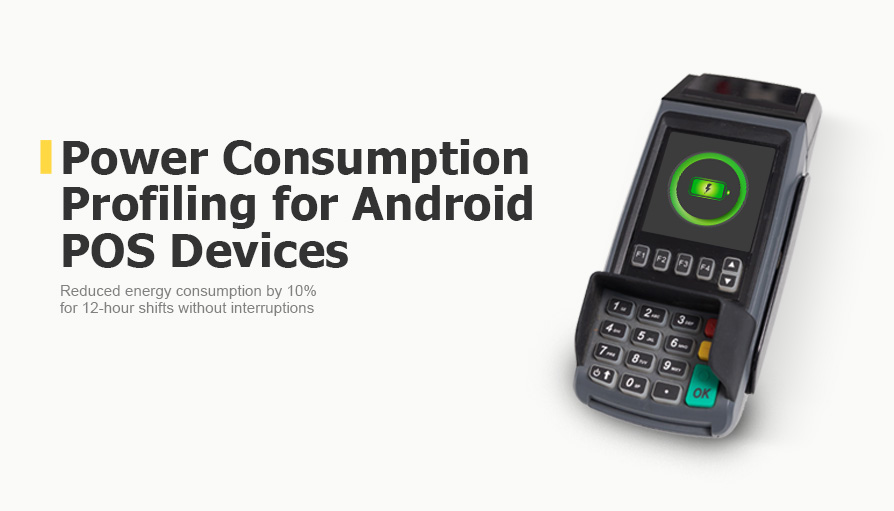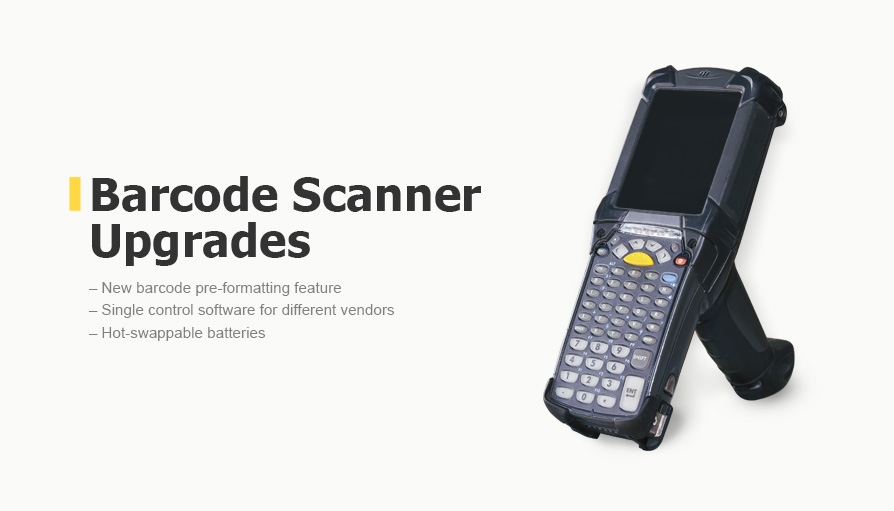Android ROM Development for POS Terminals with Barcode Scanner and Receipt Printer
Project in Nutshell:
We optimised two client's POS devices:
- In mobile cash registers, we reduced power consumption by 10% so that the battery charge would be sufficient for a 10–12-hour shift.
- In the barcode scanners, we implemented a hot-swappable battery function and switched the device management to a single software.
Client & Challenge
A developer of devices and software for automation and business management approached us to upgrade its key products in the cash register equipment segment: barcode scanners and mobile cash registers with Android for MTK devices.
Our task was customisation of client's Android ROMs and solving problems with the devices:
- The mobile cash registers and barcode scanners had problems with power consumption, and the charge was not enough for the whole working day.
- The barcode scanners from two suppliers were running different software and lacked the necessary barcode pre-formatting function.
Solution
Our engineers integrated into the client's team and used their infrastructure throughout the development process: GitLab, Jira, and Jenkins. We worked according to the Scrum methodology with two-week sprints.
1. Software Development
We improved the power consumption in the client's POS devices:
- We conducted power consumption profiling of the mobile cash register, identified the most power-consuming functions and compiled a list of recommendations to reduce the power consumption by 10%. The client's team further implemented the recommendations without our involvement.
- In barcode scanners, we implemented hot-swappable batteries so that users could replace the battery without switching off the device and interrupting their work. After analysing the battery drivers in the Linux kernel and hardware abstraction layer and preparing documentation, we implemented the hot-swap function on one of the devices.
We also worked with the barcode scanner utility and solved several problems:
- The integration of the client's barcode scanner software into the firmware. The product line included scanners from two vendors, for which the client created its own Android-based management software. We integrated it into the devices' firmware and fixed bugs caused by Android software vendor dependency.
- The addition and testing of the barcode pre-formatting function, which ensured compatibility of scanned data with various applications: databases, inventory management systems, and POS systems.
- The coordination of the scanner and camera in one application. Initially, they were controlled by custom logic in the Android framework with errors: when the camera was enabled, scanning blocked the functions of both the scanner and the camera.
We moved the control logic to the scanner app and fixed the error. The scanner and camera functions became coordinated: it was possible to use either the scanner or the camera at a time.
Business Value
As a result, our client has received upgraded devices for business automation, which ensured smooth operation:
- 10% lower power consumption of Android-based mobile cash registers makes it possible to use them during a 10–12-hour shift without battery replacement.
- Hot-swappable batteries in POS terminals ensures continuous operation, minimising downtime, which is important in the retail industry.
- Integration of the same software into different barcode scanners simplifies the configuration of each device and eliminates errors.
- Barcode pre-formatting allows the scanner to be adapted to different coding standards and software. With this feature, our client can supply their devices to customers in a variety of industries.
- Troubleshooting the scanner's applications ensures device reliability and uptime.
More of What We Do for Retail:
- Cash Register Module Switch: the development of software, hardware, and enclosure for L2 switches used in retail, HoReCa, and utility sectors.
- Software for a virtual Cash Register: thanks to our engineering support, our client increased the size of their virtual server powered by Microchip’s SparX-5.
- Embedded Software for POS Printers: we have developed software for fiscal POS printers that complies with local fiscal laws and regulations of our client.








